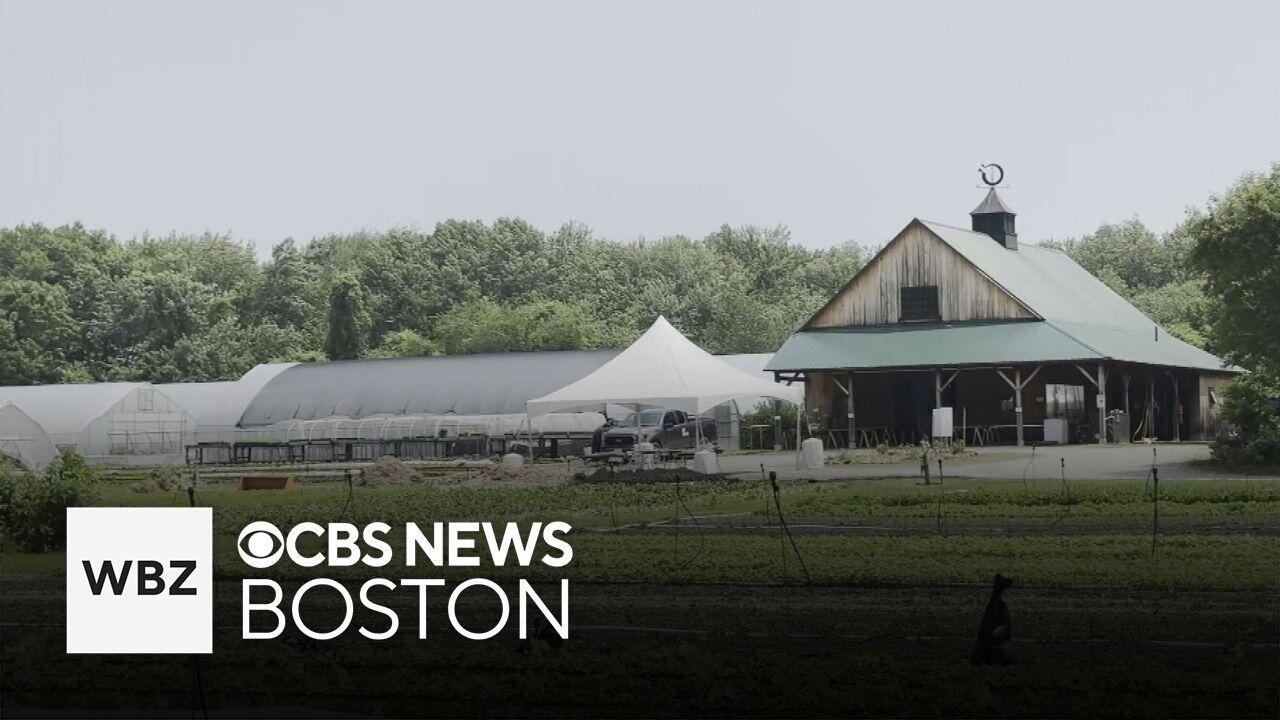Concord farm donates all the produce it grows to fight food insecurity in Massachusetts
One Concord farm is helping to combat food insecurity in Massachusetts by donating all of its produce.
Gaining Ground, a 35-year-old, no-till organic farm, doesn't sell a single fruit or vegetable. Every harvest is donated to people facing food insecurity across Massachusetts.
"We have never sold a single fruit or vegetable," said Jennifer Johnson, executive director of Gaining Ground. "We have given away everything we grow. We're exclusively dedicated to food insecurity."
They said they measure their success, not in sales, but in what they give away to communities in the state.
Helping over 10,000 people across Massachusetts
Their food reaches more than 10,000 people in 41 cities and towns across Greater Boston, Lowell, and the MetroWest area. And the need continues to grow.
In Massachusetts, food insecurity has more than doubled since the pandemic, now affecting one in five households. Rising inflation has made it even harder for many families to afford fresh, healthy food.
"I'm a firm believer that access to nutritious food, the kind you need to live a healthy life, is a human right. Full stop," Johnson said.
Volunteers and staff grow familiar crops like tomatoes, broccoli, and lettuce, but also more culturally specific ones like Brazilian eggplant, Asian greens, and a wide variety of hot peppers.
"We really consider it a gift to be able to give this food to people so that it can nourish them both in body and soul," said Johnson.
One of the farm's longtime partners is House of Hope, a family shelter in Lowell. The organization serves three meals a day to around 200 people, with much of the produce coming from Gaining Ground.
"I've been a chef for years," said Paul Dubuque, who works at House of Hope. "If this produce was going to a restaurant, you'd be paying a lot of money for it."
In 2024 alone, Gaining Ground donated 139,000 pounds of produce. That's enough for more than 650,000 servings. For many, it's not just about nutrition; it's about dignity.
"When people receive Gaining Ground food, they tell us that they have the dignity of being seen as equals," said Johnson.
Long-term sustainability
The farm is also committed to long-term sustainability. By using no-till methods and organic practices, they protect the microbial life in the soil. That's one key to growing nutrient-rich food.
"Good farmers grow vegetables and great farmers grow soil," Johnson said.
"The fungi and bacteria in the soil take the nutrients and transform them the compounds into a readily accessible compound for the plants," said Mark Condon, Director of Agriculture at Gaining Ground.
That makes the plants stronger, the food more nutritious, and the land more resilient... especially as the climate changes.
"No-till really assists when we have a lot of rain or a drought," Condon said. "The soil can act as a sponge to absorb or a great filtration for too much water."
From farm to food pantry, and soil health to human health, Gaining Ground is growing a lot more than vegetables. To learn more or get involved with Gaining Ground, click





